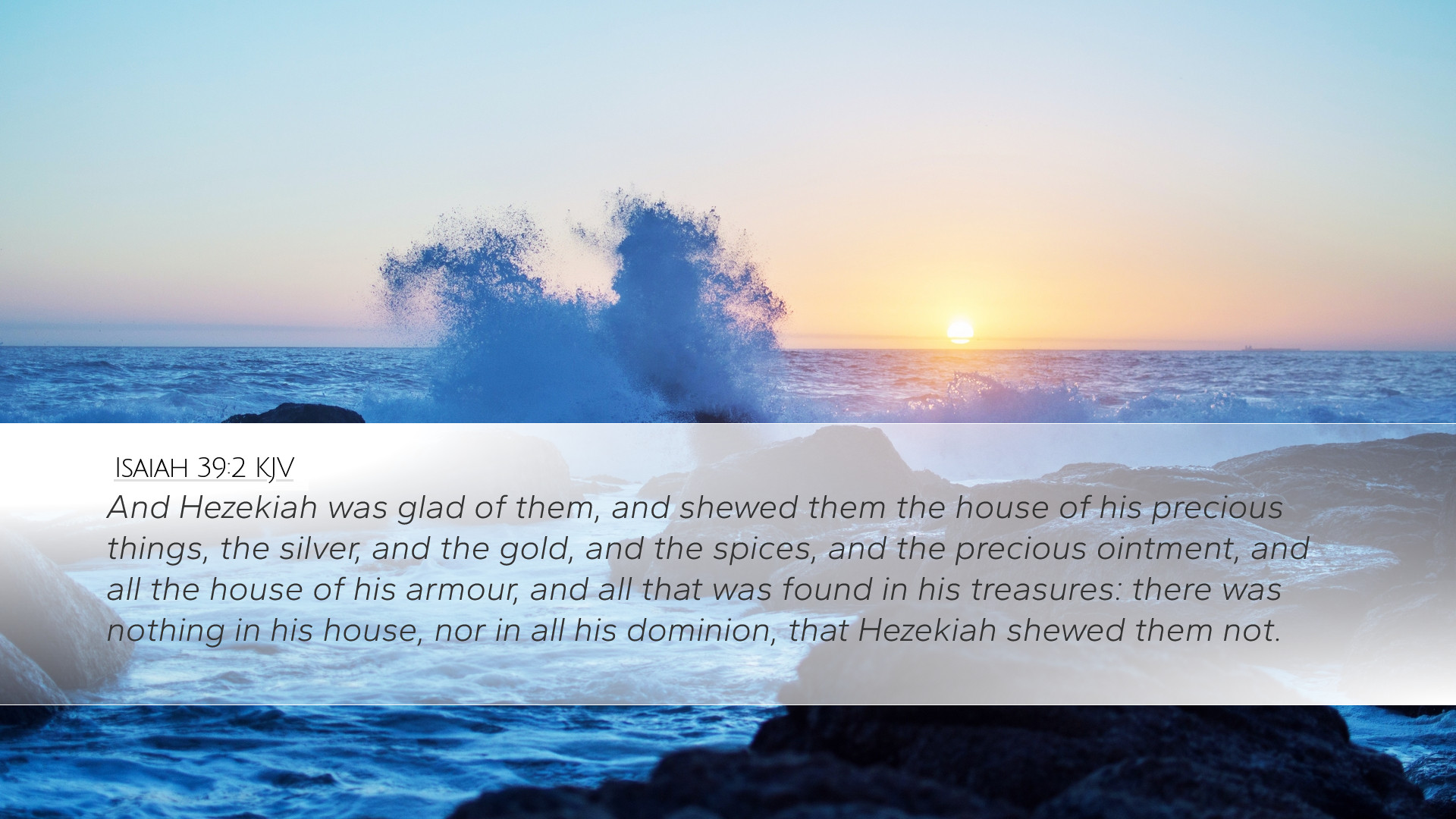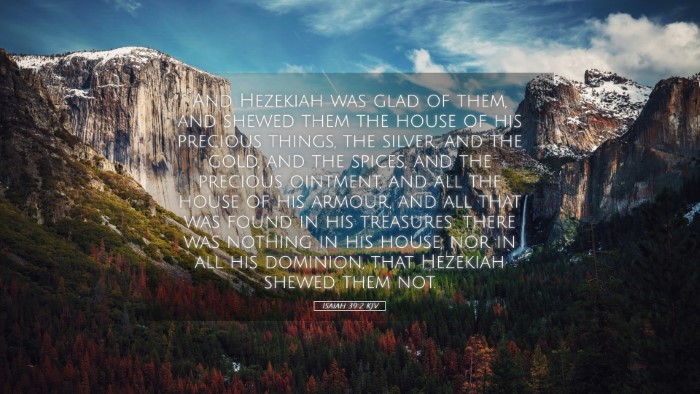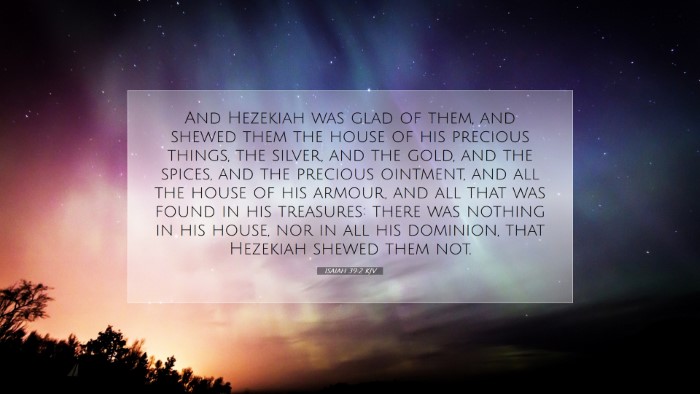Commentary on Isaiah 39:2
Isaiah 39:2 states: "And Hezekiah was glad of them, and showed them the house of his precious things, the silver, and the gold, and the spices, and the precious ointment, and all the house of his armor, and all that was found in his treasures: there was nothing in his house, nor in all his dominion, that Hezekiah showed them not." This verse serves as a critical juncture in the narrative of Hezekiah's reign, reflecting themes of pride, diplomacy, and the consequences of earthly alliances. Below is a synthesis of insights from noted public domain commentaries.
Overview of Hezekiah's Actions
Hezekiah, the king of Judah, exhibited noteworthy diplomacy when envoys from Babylon arrived. Matthew Henry notes that Hezekiah's gladness suggested he was flattered by their visit and eager to display the wealth and accomplishments of his kingdom.
- Diplomatic Relations: Hezekiah saw this visit as an opportunity to bolster his political standing, reflecting a common desire among rulers to impress foreign dignitaries.
- Pride and Wealth: The presentation of his treasures indicates a potential pride in his kingdom's prosperity, which Adam Clarke emphasizes as a sign of vanity.
- Spiritual Implications: Hezekiah's eagerness to show off his riches may suggest a fading reliance on God, as he leans towards human alliances over divine providence.
Significance of What Hezekiah Showed
The items Hezekiah showcased—silver, gold, spices, and armor—are symbolic of wealth and power. Albert Barnes remarks on the implications of this display, highlighting how it not only signified wealth but also a lack of discernment regarding the intentions of the Babylonian emissaries.
- Materialism: The treasures of the kingdom should have been seen as blessings from God, yet Hezekiah's demonstration indicates a misplacement of value.
- Armor as Security: The display of armor might have been an attempt to project military strength, showcasing readiness against potential adversaries.
Theological Reflections
This narrative introduces vital theological reflections on human pride and the danger of misplaced trust. The Scriptures repeatedly warn against the folly of trusting in riches and external alliances rather than depending on God.
- Trust in God vs. Wealth: Commentators like Matthew Henry urge readers to recognize that true security lies in a relationship with God, not in material possessions.
- Divine Judgment: The subsequent warning from the prophet Isaiah indicates that Hezekiah's pride would lead to consequences for Judah, a common theme in prophetic literature warning against reliance on earthly power.
Consequences of Hezekiah's Display
Following this incident, the prophet Isaiah prophesies about the future Babylonian captivity of Judah, serving as a stern warning about the consequences of Hezekiah's actions. Commentators emphasize that this event reflects the larger narrative of Israel's continual struggle against unfaithfulness to God.
- Historical Context: Adam Clarke points out that Judah faced eventual destruction as a direct consequence of Hezekiah's lack of wisdom in displaying his wealth to Babylonian envoys.
- Leadership and Legacy: The decision-making of leaders has far-reaching effects, as Hezekiah’s actions not only impacted his reign but also set a precedent for future generations.
Lessons for Today
For pastors, theologians, and believers today, Isaiah 39:2 serves as a focal point for reflection on leadership, humility, and the appropriate handling of one’s resources. It challenges contemporary leaders to examine their motives, priorities, and the impact of their decisions on the greater community.
- Humility in Leadership: The necessity for leaders to demonstrate humility and reliance on God rather than personal achievement or material wealth.
- Faithful Stewardship: Encouragement to view earthly resources as gifts from God, to be used wisely and not flaunted for personal glory.
- The Impact of Influence: Understanding that our interactions and the way we present ourselves can lead to significant spiritual and practical consequences.
Conclusion
In sum, Isaiah 39:2 serves as a poignant reminder of the delicate balance between earthly pride and divine providence. Hezekiah’s narrative teaches us about the dangers of misplaced trust and the importance of maintaining faithfulness to God amidst the invitations of worldly allure. The reflections from the commentaries encourage us to be vigilant in our faith and thoughtful in our dealings with the world, always recognizing that true wisdom comes from reverence to God and His guidance.


